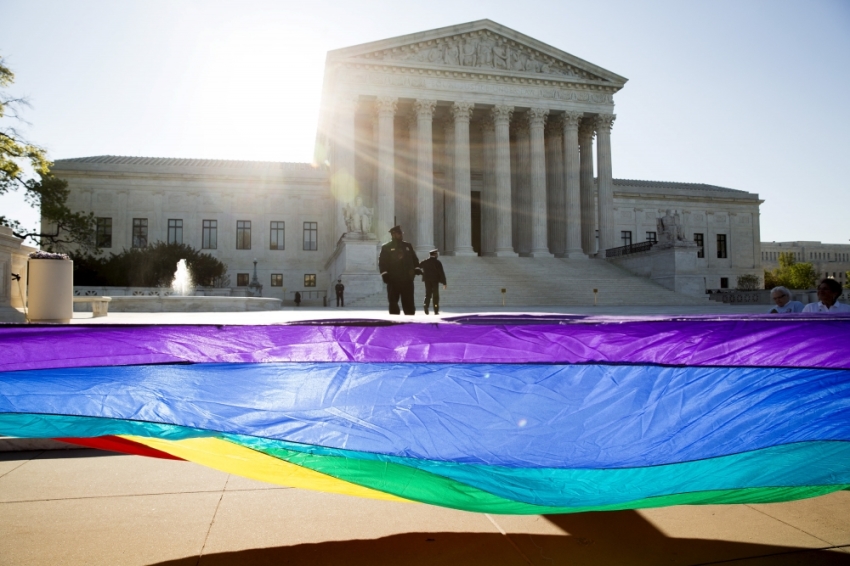Fairness for All Act: We remain unconvinced

The Fairness for All (FFA) legislation, introduced earlier this month by Rep. Chris Stewart (R-Utah), has yet to generate energy or broad support in Congress, in the secular press, or in the Christian community.
We consider many of the supporters of FFA to be good and long-time friends, but we remain unconvinced that FFA is the right option for the Christian community.
The strongest points in favor of Fairness for All are:
1) An attractive and winsome name. Who does not want “fairness” for “all?” Who does not want what is being called “balanced” legislation that can supposedly attract bipartisan support? Who does not want to try to find some way forward that provides a good outcome for “all” in the pluralistic context of American life in the 21st century?
2) A legislation other than the Equality Act to address concerns regarding religious liberty for religious institutions and organizations as well as special protected status for the LGBTQ+ community. Those advocating for FFA, which proposes religious liberty protections for some religious entities, believe that this initiative is the best option that the Christian community can hope for at this time.
3) A framework for some Christian institutions and organizations to speak to society with a serious understanding of what it means to live in a pluralistic context in the 21st century, doing so in a way that is not sexually demeaning.
While these things are certainly commendable, our concerns outweigh these positives:
1) FFA secures religious liberty protection for some institutions and organizations, but does not do so in the same way for every individual or entity. The bill would allow businesses with less than 15 employees – such as bakers, florists and photographers – that are opposed to same-sex marriage to refuse to serve LGBTQ people. But some healthcare providers, business leaders, and countless professionals will likely find themselves outside of the select group of entities that are exempted, which means that in this sense there is regrettably no fairness for all. The sad thing about the FFA name is that it assumes that anyone who is not supportive of FFA is not supportive of “fairness,” which is certainly not the case.
2) FFA wrongly assumes that the LGBTQ+ community is suffering widespread unjust treatment that is rooted primarily in religious bigotry.
3) While the Equality Act did pass through a Democratic House, we think there is little chance that it will be approved in the current Senate. At the same time, we think that there is little, if any, chance for FFA to be approved by either branch of Congress (Congressman Stewart, himself, offered similar thoughts recently). The FFA proposal itself may, ironically, have the opposite effect and move the entire conversation in a direction unfavorable to the Christian community.
4) Embedded in the FFA proposal is the assumption that the Christian church needs to yield to society’s understanding of gender at this particular moment in history. Throughout the years, Christian teaching has clearly affirmed that humans are created male and female as equal bearers of the image of God (and that male and female are created for each other). Even if unintentional, FFA may bring great confusion on these important Christian tenets while penalizing those who continue to hold these traditional affirmations on the basis of Scripture and Christian teaching.
5) While FFA sounds like the legislative form of the Golden Rule, upon closer inspection it is not. No one wants to be against “fairness,” but granting the Sexual Orientation and Gender Identity (SOGI) community protected class status could well result in rulings imposing a nationwide bathroom/dressing room policy, a nationwide pronoun policy, and/or a sex-reassignment healthcare mandate. If this were a true “live and let live” approach to pluralism, that would be one thing, but that does not appear to be what FFA is proposing.
6) SOGI concerns are related primarily to anti-discrimination laws while religious liberty has been understood as an inalienable human right since the founding of this country. FFA confuses these two things and attempts to trade one for the other. What is lacking is a shared understanding and legal definition of discrimination. Under FFA, religious liberty becomes a privilege granted to some religious groups rather than an inalienable right, thus trading away that which is already established by the First Amendment.
7) FFA is patterned after a similar “compromise” that was reached in Utah where the Latter Day Saints maintain a true majority in the population and a position of social and political strength in the state. In a context in which that is not the case, such as large portions of the United States, then what has initially been presented as respect for all persons may well become a first step toward mandated affirmation for all underlying tenets of the SOGI proposals.
8) On a very practical and pragmatic level, FFA initiatives will sadly further fragment the evangelical and larger Christian community, especially given that the Roman Catholic Bishops, the leadership of most major evangelical denominations, and key representatives from numerous parachurch organizations have already indicated their lack of support for FFA.
9) There is no theological support for the SOGI initiatives that would be endorsed by FFA, especially the misguided understanding of anthropology. A theological case can certainly be made for supporting a genuinely principled pluralism, but that should not be seen as one and the same with FFA. Most Christian leaders that we know support principled pluralism. It is a faulty jump, however, to suggest that FFA is an amplification or extension of a commitment to principled pluralism. It needs to be understood that FFA, at best, is a tactical political step and not one shaped by an undergirding theological perspective.
10) The FFA initiative seems to us to move the discussion from the arena of First Amendment legal concerns, in which historical religious liberty affirmations are embedded, to the Fourteenth Amendment, thus focusing more on equal protection matters. In doing so, the case for religious liberty becomes much weaker.
The points noted above have come from our attempts to listen and learn from various people as these discussions have developed. We recognize that these matters represent complex and complicated issues, but at this time, we do not think it wise to support the Fairness for All legislation. Instead it seems wise to continue to advocate for public policy based upon our First Amendment rights.
David S. Dockery serves as Theologian-in-Residence at Southwestern Baptist Theological Seminary. Carl E. Zylstra serves with the Square Inch Consulting Group. Both have held leadership roles in Christian educational institutions and associations.



























